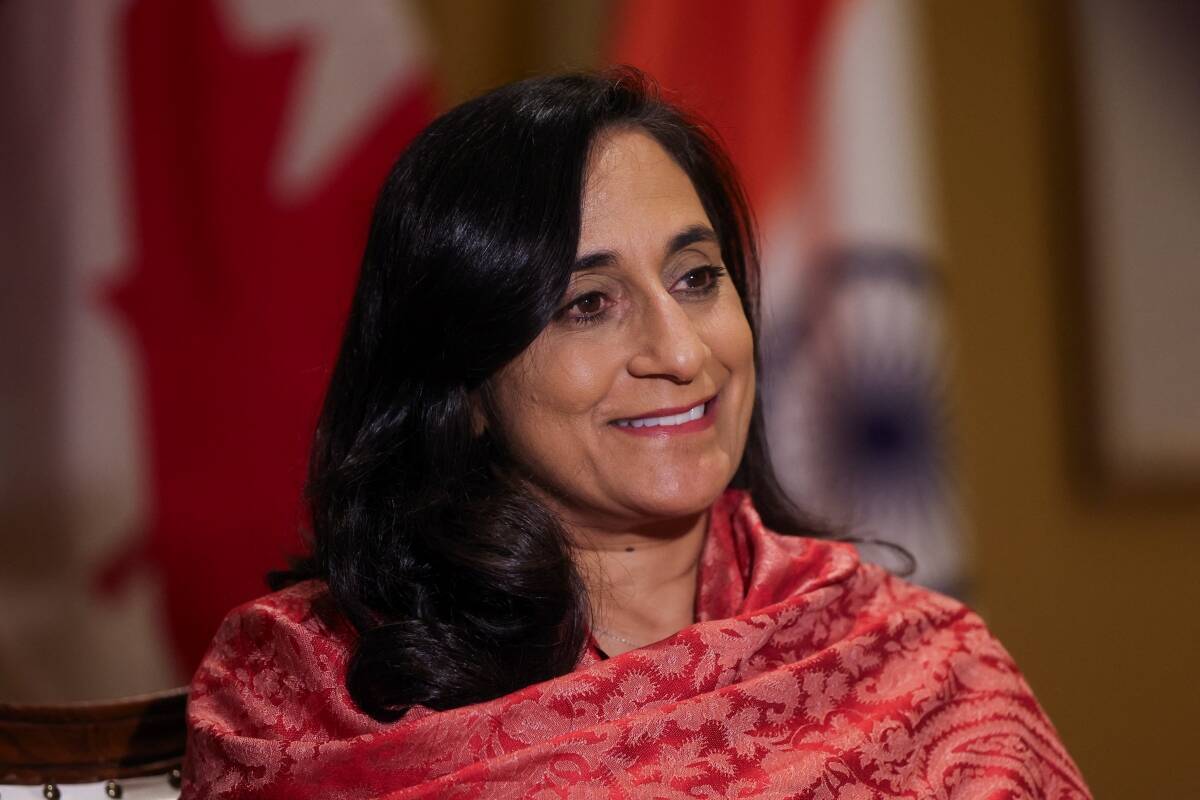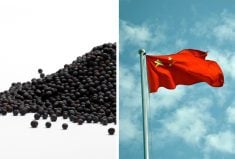CHICAGO (Reuters) — A $250 million deal for Bunge Ltd. to take control of CWB is set to shake up wheat sales, but may not help the head of the agribusiness firm in his drive to boost profits.
The transaction was announced on Wednesday as Bunge chief executive Soren Schroder, 53, faces pressure to improve earnings after leading the world’s largest oilseed processor for nearly two years.
Since he became CEO in June 2013, the company’s stock price has advanced 23 percent, lagging gains of nearly 50 percent for rival Archer Daniels Midland Co.
Read Also

Canada and China discuss disputes over canola and EVs, says Ottawa
Senior Canadian and Chinese officials discussed bilateral trade disputes involving canola and electric vehicles on Friday, Ottawa said, but gave no indication of any immediate breakthrough.
Investors and analysts are hoping Schroder on April 30 delivers strong first quarter earnings after operating profits in Bunge’s core agribusiness segment fell 14 percent in 2014.
It should be easy for trading houses like Bunge and ADM to increase earnings as large harvests provide ample opportunity to make money out of their bread-and-butter business of transporting, storing and selling grain. However, Bunge has struggled with managing risk and hedging soybeans, with missteps in these areas repeatedly hurting profits.
Bunge expects the CWB deal, which partners the company with Saudi Arabia’s state-owned agricultural investment firm, to close in July and it will not factor into first-quarter earnings. Once it is finalized, it will be too small to significantly impact results, said Jeff Stafford, senior analyst for Morningstar, noting Bunge’s market capitalization tops US$12 billion.
“That is not a big transformative deal,” Stafford added.
Karl Gerrand, who resigned as managing director of Bunge’s Canada division to lead the joint venture investing in CWB, declined to comment on the impact to Bunge’s bottom line.
For the first quarter, Bunge is expected to earn $1.19 per share excluding certain items, up from a loss of 12 cents a year earlier, according to Thomson Reuters data. In the fourth quarter, profits fell short of expectations largely due to hedging losses.
Bunge logged an $80 million loss on its books in the quarter because prices for oilseeds in North America and fuel shifted after the company locked in margins. Schroder has said he will make this back in the first half of 2015.
Bunge had a similar $80 million hedging loss in oilseed businesses in the third quarter of 2014, which it recouped in the fourth quarter.
The company lost out further in the fourth quarter when the value of soybeans it was delivering to top importer China dropped $30 million below the amount the company had paid for them.
A spokeswoman said Schroder was unable to comment about Bunge’s performance before the earnings report. In February, after the company reported fourth-quarter results, the CEO told Reuters he felt “frankly really, really good” about Bunge’s direction.
Traders grappled with markets that “were a bit random” last year because the agricultural industry was transitioning to an ample supply of grain from a scarcity, Schroder told analysts on a call in February.
“It is a continuous process of improving how we look at risk,” he said.
The decline in Bunge’s agribusiness earnings last year was particularly painful because ADM increased profits in agricultural services, which includes grain trading, by 187 percent. Profits in ADM’s oilseed and corn processing units also rose.
“I don’t want to critique their hedging policy, other than it hasn’t worked,” said Brett Wong, senior research analyst for Piper Jaffray & Co, about Bunge.
Analysts and investors want Bunge’s hedging losses to stop, and complain the unexpected charges are hurting share prices. No major shareholders or board members have publicly called for Schroder to resign.
“From what we can see, the board is OK with things,” said Ari Gendason, managing principal for investment firm Arlon Group. “I don’t think they should be, but they seem to be.”
Arlon owned Bunge shares but sold them late last year due to concerns about the potential for growth, Gendason said.
Last year, Schroder’s compensation climbed 55 percent to $10.1 million as his salary rose 20 percent to $1.2 million and options awards increased, regulatory filings show.
Schroder has said he is focused on improving financial results by building Bunge’s agribusiness and food units. He has pointed to an 8.4 percent return on invested capital in the units last year as a bright spot on the balance sheet, an increase from 7.5 percent in 2013. Schroder aims to raise it to nine percent this year.
However, the figure excludes Bunge’s loss-making sugar business. When that is factored in, together with bioenergy, the return was 6.6 percent last year, falling short of the seven percent weighted average cost of capital.
Schroder is exploring options, including a sale, for Brazilian sugarcane mills.
Privately held commodity trader Cargill Inc. has set the bar high for Bunge’s upcoming earnings, reporting last week that profits for the quarter ended Feb. 28 rose 33 percent on the year.
And Goldman Sachs recently raised its rating for Bunge to a buy, citing the best macro environment for the company in years.
“Everybody’s benefiting from this environment, it’s just that Bunge keeps shooting themselves in the foot,” Wong said last month, referring to hedging losses.
“Management just can’t seem to get it right.”














